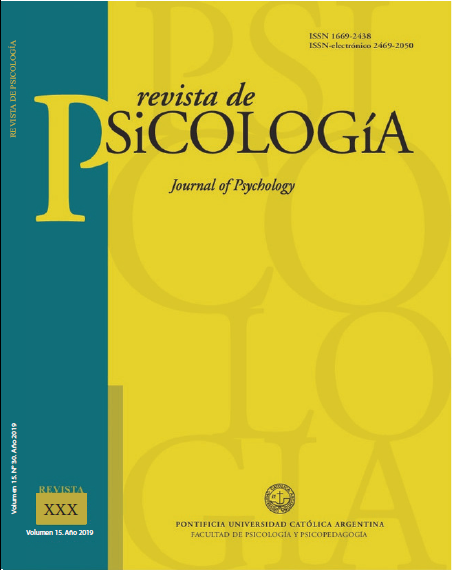Is the use of Aripiprazole effective for the management of irritability and behavioral symptoms in adolescents with Prader Willi Syndrome?: a case report Efficacy of Aripiprazole in a case with PWS
Keywords:
PWS, Aripiprazole, psychiatric disorders, antipsychoticsAbstract
Prader Willi Syndrome (PWS) is a rare neurodevelopment disease, characterized by alterations in the center of satiety generating morbid obesity if unchecked, and has a characteristic physical and psychological phenotype, presenting a high index of psychiatric comorbidity. Aripiprazole is an atypical third generation antipsychotic that has unique pharmacological properties that differentiate it from other medications in this family. It is alarming the frequent use of Aripiprazole in people with PWS when there is little clinical evidence demonstrating the efficacy of the drug in this population. The aim of this work was to study the efficacy of Aripiprazole in a case of a teenager with PWS. Method: The methodology consisted in a single longitudinal case study, because it was followed up for two years. Participant: An 18-year-old male diagnosed with PWS. Results: The present work showed in an adolescent with PWS that Aripiprazole does not show clinical response of sustained behavioral improvement over time. The originality of this work lies in reporting the first case of probable pharmacological activation effect in a male with PWS, medicated with Aripiprazole.Downloads
References
Arberas, C., Guillamondegui, M. J., Fernández, M. D. C., & Tello, A. M. (2005). Síndrome de prader willi. Rev. Hosp. Niños B. Aires, 47(215), 311-320.
Akça, Ö. F., & Yilmaz, S. (2016). Aripiprazole in the treatment of obsessive compulsive disorder and aggressive behaviors in a child with Prader Willi syndrome: a case report. Journal of clinical psychopharmacology, 36(5), 526-528.
Benabarre, A., Campos, J. A., Russo, F., Cerveri, G., Prestia, D., González, S., ...& Gutiérrez-Rojas, L. (2018). Tratamiento con aripiprazol en la práctica clínica: consenso de un panel de expertos. Psiquiatría Biológica.
Briegel, W. (2018).Clinical usefulness of aripiprazole treatment in a girl with Prader-Willi syndrome and psychosis. Clinical Psychopharmacology and Neuroscience, 16(4), 497.
Driscoll, D. J., Miller, J. L., Schwartz, S., & Cassidy, S. B. (2017). Prader-Willi Syndrome. In GeneReviews®[Internet]. University of Washington, Seattle.
Dykens, E. M. (2004). Maladaptive and compulsive behavior in Prader-Willi syndrome: new insights from older adults. American Journal on Mental Retardation, 109(2), 142-153.
Dykens, E. M., Leckman, J. F., & Cassidy, S. B. (1996).Obsessions and compulsions in Prader‐Willi syndrome. Journal of Child Psychology and Psychiatry, 37(8), 995-1002.
Dykens, E. M., &Rosner, B. A. (1999). Refining behavioral phenotypes: Personality—motivation in Williams and Prader-Willi syndromes. American Journalon Mental Retardation, 104(2), 158-169.
Pérez, L. M., Muñoz-Ruata, J., & García, E. G. (2010). El Síndrome de Prader-Willi: Características Cognitivas e Implicaciones Educativas. Psicología educativa, 16(1).
Rosner, B. A., Hodapp, R. M., Fidler, D. J., Sagun, J. N., &Dykens, E. M. (2004). Social competence in persons with Prader‐Willi, Williams and Down's Syndromes. Journal of Applied Research in Intellectual Disabilities, 17(3), 209-217.
Solá-Aznar, J., & Giménez-Pérez, G. (2006). Abordaje integral del síndrome de Prader-Willi en la edad adulta. Endocrinología y nutrición, 53(3), 181-189.
Travieso Tellez, A., Menéndez García, R., &Licourt Otero, D. (2014).Caracterización clínico genética del síndrome PraderWilli. Revista de Ciencias Médicas de Pinar del Río, 18(6), 974-982.
Yturriaga, R. (2010). Síndrome de Prader-Willi. RevEspEndocrinolPediatr, 1(1), 71-73.
Shapiro, D. A., Renock, S., Arrington, E., Chiodo, L. A., Liu, L. X., Sibley, D. R., ...& Mailman, R. (2003). Aripiprazole, a novel atypical antipsychotic drug with a unique and robustpharmacology. Neuropsychopharmacology, 28(8), 1400.
Sinnema, M., Boer, H., Collin, P., Maaskant, M. A., van Roozendaal, K. E., Schrander-Stumpel, C. T., &Curfs, L. M. (2011). Psychiatric illness in a cohort of adults with Prader-Willi syndrome. Research in developmental disabilities, 32(5), 1729-1735.
Downloads
Published
How to Cite
Issue
Section
License
Copyright (c) 2019 Revista de Psicología

This work is licensed under a Creative Commons Attribution-NonCommercial-ShareAlike 4.0 International License.














